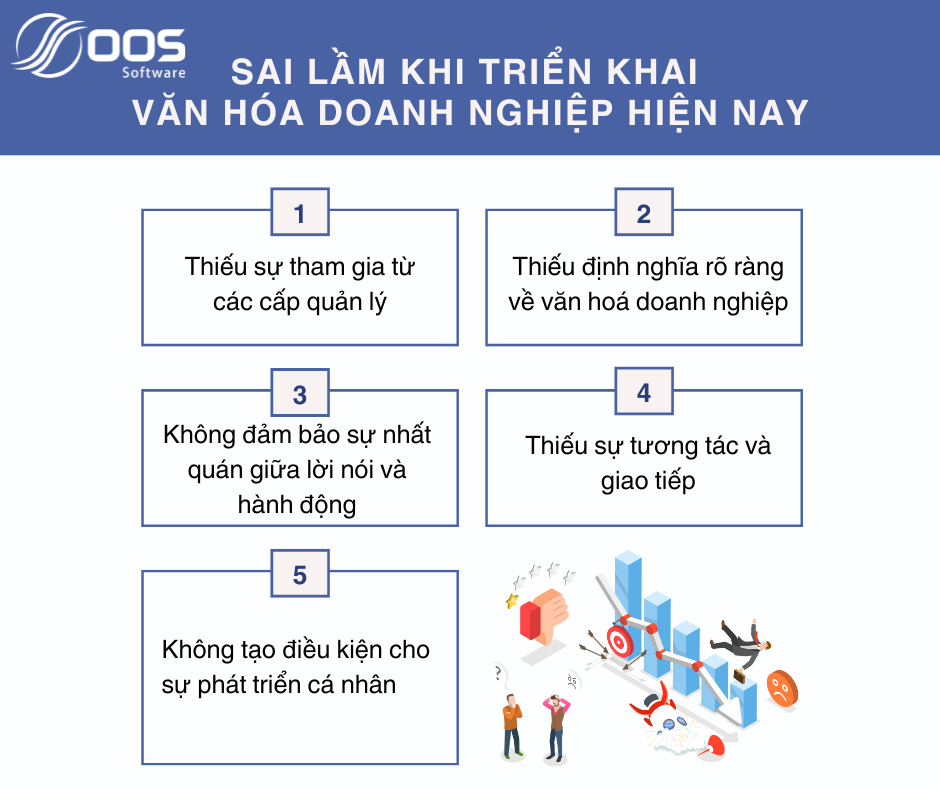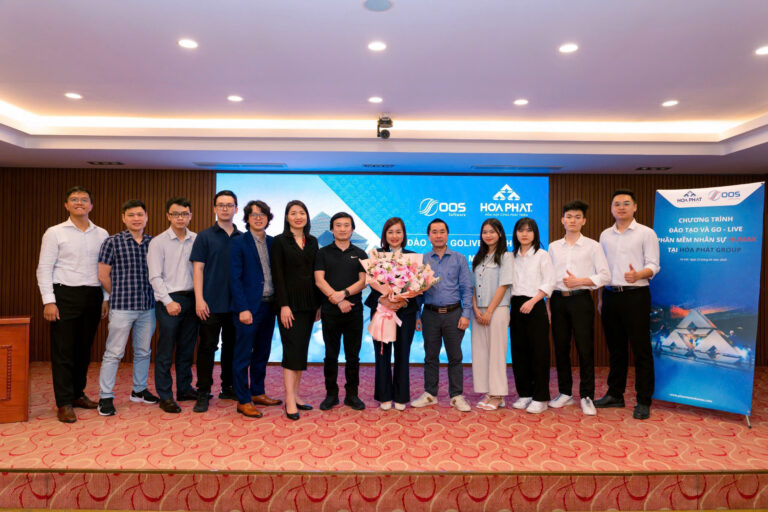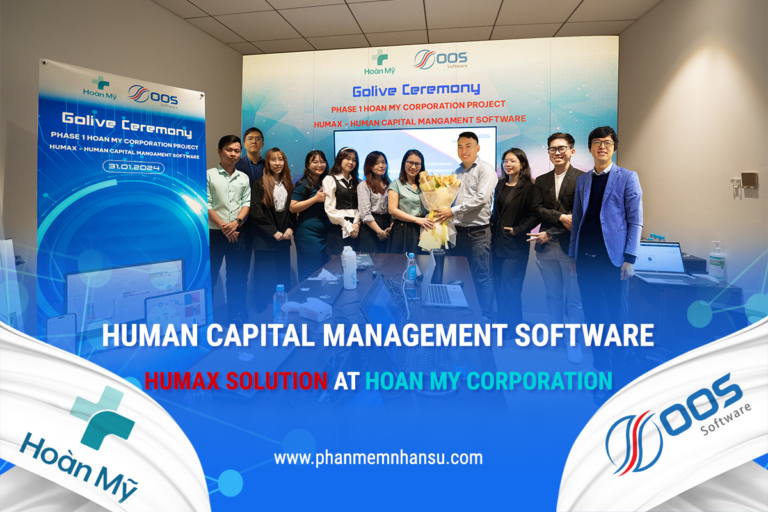Do you want to build a strong and successful corporate culture? An excellent HR experience is critical to achieving that. Correct understanding of corporate culture and human resources experience is the basis for implementing a successful corporate culture. Let's find out the details in this article.
Correct understanding of corporate culture and human resources experience
To start, consider a proper understanding of corporate culture and HR experience. Corporate culture refers to an organization's values, rules, and beliefs. It creates a work environment and a system that helps employees interact and function in a consistent way.
Meanwhile, HR experience is the way employees interact with corporate culture. It involves the work environment, work processes, support from management, and how the organization treats employees. A good HR experience creates a positive environment that encourages commitment and buy-in.
The connection between corporate culture and human resource experience
Corporate culture and human resource experience cannot be considered two independent factors, but in fact they are strongly linked to each other. Corporate culture plays an important role in determining an organization's values, beliefs, and codes of conduct, while HR experience is the way employees interact with and experience that corporate culture.

How does corporate culture impact the HR experience?
Create a foundation for the working environment
Corporate culture shapes the way every member interacts, communicates and works with each other. A positive and supportive corporate culture creates a comfortable work environment that encourages creativity and promotes teamwork.
Connect and create trust
A positive corporate culture facilitates engagement between employees and the organization. This connection helps build trust and increase employees' ability to contribute. When employees feel respected and valued, their work experience is enhanced.
Encourage personal development
Corporate culture can create an environment that encourages employees to develop personally and improve their skills. By providing opportunities for learning, training and advancement, corporate culture creates motivation and excitement for personal development.

See more: Building a healthy corporate culture
How does HR experience impact corporate culture?
A positive HR experience is a conduit for cultivating a positive corporate culture.
Positive HR experiences also promote the spread and diffusion of a positive culture within the organization. When an employee has a positive experience, they tend to share these positive experiences and emotions with their colleagues. This creates a positive impact, creating momentum for positive values and good behaviors to be widely replicated and accepted within the organization.
Besides, a positive HR experience also promotes the development and improvement of corporate culture. When organizations create conditions for employees to experience a positive work environment, it encourages personal growth, learning and innovation. Employees have the ability to develop skills, seize new opportunities and contribute to organizational change and improvement.
Employee experiences shape organizational values and behaviors.
When employees have a good experience at work, they are treated fairly, respected and appreciated, which contributes to the formation and reinforcement of positive values and behaviors within the organization. position.
Value shaping
Creating an excellent employee experience helps empower them to recognize and value the organization's values. When employees feel that an organization is trustworthy, fair, and worth working for, they will tend to respect and adhere to that organization's values. This positive experience assists in shaping and promoting shared values within the organization.
Identify behavior
Employee experiences influence how they behave and interact with colleagues and customers. When employees have positive experiences of being respected, supported, and encouraged, they are more likely to demonstrate collaborative, cooperative, and professional behavior. This contributes to building a positive working environment and creating trust from customers.
Spread culture
An excellent HR experience also has a ripple effect on organizational culture. When an employee has a positive experience, they tend to share and inspire this positivity with their colleagues. This contributes to building and reinforcing a positive culture within the organization, creating an encouraging and motivating work environment.
See more: How to increase employee engagement with the organization?
Employee experience can also affect an organization's reputation
Employees are direct representatives of the organization, and their experiences make an impression on customers, communities, and other stakeholders. Here are some ways employee experience affects an organization's reputation:
Company's face
Positive HR experiences contribute to building a positive image of the company. When employees are satisfied and committed to their jobs, they often convey positive messages about the organization to customers and others. This builds trust and appreciation for the organization, creates a good image and increases credibility in the eyes of the public.
Service quality
A positive employee experience can influence the quality of service an organization provides. Satisfied and passionate employees tend to provide better service, creating a positive experience for customers. This can strengthen the organization's reputation for providing high-quality products and services.
Public interaction
People's experiences influence an organization's interactions with the public. When employees have positive experiences, they tend to communicate and interact positively with customers, partners and the community. This creates a good image of the organization in the eyes of the public and can attract interest and support from stakeholders.
Negative HR experiences can damage corporate culture.
When employees experience negative experiences such as unfairness, disrespect, job stress, or a non-encouraging work environment, this can cause the following negative consequences:
Dissatisfaction and reduced motivation
When employees feel dissatisfied with their work experience, they can lose motivation and passion for their work. This can lead to reduced performance and inattention at work, affecting the success and growth of the organization.
Loss of trust and instability
Negative employee experiences can erode trust and cause instability in corporate culture. Employees may lose trust in leadership and the organization's value system, and this can spread to other members, affecting solidarity and team spirit.
Creates a negative cycle
A bad HR experience can create a negative cycle in corporate culture. When an employee has a bad experience, they can share and spread that dissatisfaction to others. This can affect the morale and solidarity of the entire organization.
See more articles: 5 myths about employee experience that can hinder business success
Mistakes when implementing current corporate culture

Lack of participation from management levels
This mistake occurs when leaders do not buy into the corporate culture model and values. To overcome this, it is necessary to set a strong example from leaders through taking actions that are consistent with corporate culture. At the same time, create opportunities for leaders to interact and communicate directly with employees to convey the value and meaning of corporate culture.
Lack of clear definition of corporate culture
A lack of clarity and specificity in defining corporate culture can lead to misunderstandings and employee demotivation. To fix this, clearly identify and communicate the values, mindsets and behaviors your business wants to encourage. Use internal communications such as banners, articles, videos or meetings to ensure that everyone in the organization understands and applies the corporate culture accurately.
Does not ensure consistency between words and actions
This mistake occurs when there is no consistency between what is said and what is done. To fix it, leaders and employees need to act according to their values and principles. They need to be a living model for the corporate culture by taking appropriate actions and decisions. At the same time, establish a periodic review and assessment process to ensure consistency between words and actions.
Lack of interaction and communication
A common mistake in corporate culture settings is a lack of effective interaction and communication. To overcome it, it is necessary to build expanded communication channels and create close interaction between management and employee levels. This could include holding regular meetings, meeting via video conference, or using internal communication tools such as online forums or internal messaging applications. Ensure that cultural information and values are communicated effectively and continuously.
Does not facilitate personal growth
An important element of corporate culture is facilitating the personal development of employees. To fix it, invest in employee skills development and training. Provide internal courses, training programs, or support employees to participate in external courses to improve their capabilities and knowledge. Create opportunities that promote personal growth and development, such as mentorship programs, multi-disciplinary projects or participation in external professional activities.
Conclude
An excellent HR experience plays an important role in building and implementing a successful corporate culture. Correct understanding of corporate culture and human resources experience is the foundation to ensure success in this process.
In the process of implementing corporate culture, it is necessary to avoid common mistakes such as lack of commitment from management levels and lack of clear definition and communication. At the same time, it is necessary to create effective interaction and communication, facilitate personal development of employees and ensure consensus and consensus from all members of the organization.
By placing the HR experience at the center, businesses will build a positive and creative work environment, while creating greater commitment, performance and contribution from employees. This will be the key to success in installing and maintaining a successful corporate culture.
OOS Software has more than 10 years of accompanying many businesses and corporations. Contact now to Get advice on Human Resources Management Software for your Business.























